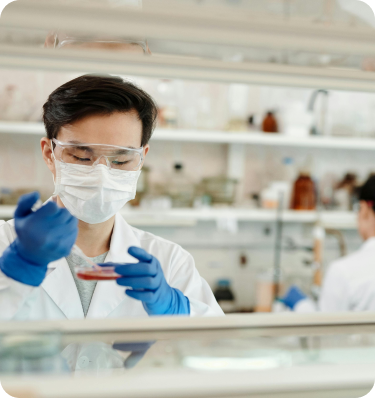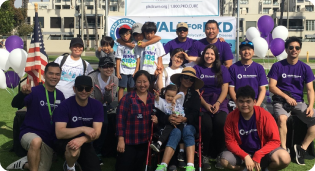Life is full of choices and decisions. Life leads us down many different paths. Some turns we have full control over. Others we are swept up by a strong unwanted gust of wind and dropped right in the middle of unknown territory. PKD can force us to make big decisions in life and to make sacrifices. PKD can make us stronger with steadfast values. We learn from our choices. We grow from our decisions. Although we are in different phases on our PKD journey, we fight together, are stronger together and are one family united together.
One of our fellow PKD fighters, Stefanie Staggs (Stefanie Long), is in the midst of making big life decisions. She is 27 years old and lives in Nashville, Tennessee. She was diagnosed with PKD when she was 23 years old. Elevated heart rate, chest and side pain led her to the doctor’s and her eventual diagnosis of PKD. Stefanie’s father passed away at 33 years-of-age from a ruptured aortic aneurysm. At the time of Stefanie’s diagnosis, she had never heard of PKD. Her sister went to the hospital where their father passed in 1991. They obtained a copy of his records which said he had bilateral kidney cysts and PKD and that all family members should be screened. They were never told this information. Fortunately, Stefanie has full kidney function and only occasional back pain from her enlarged left kidney.

Stefanie is the only one in her family living with the disease. She wants to do anything in her power to stop this disease from spreading further in her family tree. She desires to have children and to save her kids the heartache that typically comes from having PKD. These strong emotions led her down the path of pursuing pre-implantation genetic diagnosis (PGD) and in vitro fertilization (IVF). She received the thumbs up from her nephrologist that it was safe to pursue this route and pregnancy.
She learned of PGD while online researching pregnancy and PKD. Stefanie’s explanation of the process is that you go through the typical IVF process like someone with fertility issues would. After stimulating your ovaries with medications, multiple eggs are retrieved and are fertilized with your partner’s sperm. The embryos that fertilize and survive five days can then go through PGD testing. PGD testing is completed with a test that is made weeks before you go through the IVF process. A test is developed based on cheek swabs from you, your parents and your husband or partner, as well as a genetic blood test. Her father’s hospital records were also sent showing the PKD connection. The test identifies the exact gene and chromosome in your body affected by PKD. The embryos can then be tested to see which embryos are/aren’t affected by the disease. Then the embryos that don’t have the disease can be transferred to the woman in hopes of a healthy pregnancy without kidney disease. The testing is 99% accurate. The man or woman could have the disease.
There are many women who do not find out they have PKD until after they already have children. Stefanie feels strongly that she learned of her diagnosis at a young age so that she could do this testing. This type of decision takes dedication, as it does not happen overnight. This has been two years in the making for Stefanie and her husband. It has been a bumpy process for them, but they continue to remain positive. Out of all of the embryos they had fertilized (over 15), only 3 were unaffected. They transferred one embryo and got pregnant. Sadly, in June of this year they had a miscarriage at 10 weeks. They are currently two weeks away from their second transfer using their frozen embryos. They will know by Thanksgiving if they are pregnant.
I admire Stefanie’s devotion, persistence and commitment to her desire to have children who will not suffer from PKD. She said she has learned patience through this journey. It is hard for her to hear about all of her friends’ pregnancy announcements when she is trying so hard herself. But she continues to forge ahead with this well thought-out plan in hopes to stop this disease in its tracks.
One person’s decision in life does not mean that is the best path for each of us to follow. I do think hearing others’ experiences and choices helps to make us well-rounded in our thought process and knowledge base. Stefanie’s message to all of us is that if you know you have PKD or any other genetic disease, do your research and learn your options. When presented with a diagnosis such as PKD, it is easy to feel as though you have minimal control. Please remember that there are certain aspects in our life that we can control. I encourage all of us to focus on what we can control rather than what we can’t. Embrace the path we are on, whether it is one we were swept up on or one we chose.
Have you heard of PGD? Any information or first hand experiences you are willing to share would be greatly appreciated.





